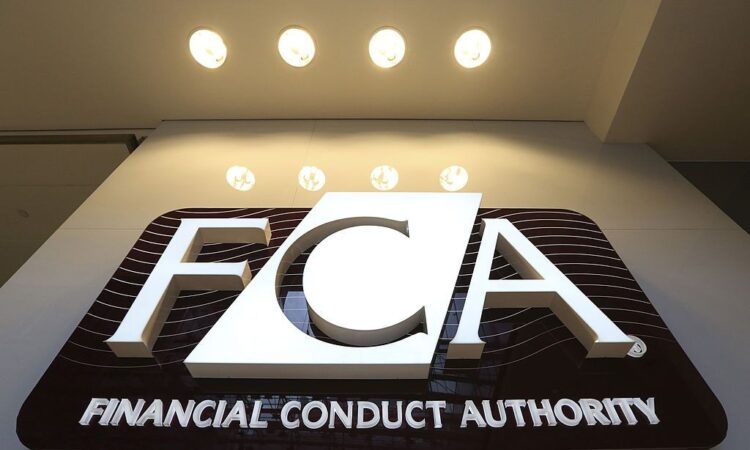
This is a hot topic among UK politicians. Several have complained of banks’ excessive conservatism and invasive questioning of themselves or their family, which results from processes to judge corruption risks among Politically Exposed Persons (PEPs). Following the storm over NatWest Group Plc’s decision to ditch the politician-turned-media provocateur Nigel Farage as a client, Britain’s finance minister, Jeremy Hunt, claimed he had once been denied a bank account by start-up lender Monzo Bank Ltd.
There is now extra pressure on a regulatory review of banks’ application of PEP rules, but politicians are far from the only group affected by the cautious and increasingly industrialized and automated approach to the battle against money laundering.
Charities like Oxfam and Christian Aid have faced problems sending money to some parts of the world, while others like Islamic Relief have had accounts closed. Many British Muslims have suffered restrictions and rejection from the domestic financial system for the best part of a decade and figures from the UK Financial Conduct Authority, a regulator, show this demographic group is the most likely to be unbanked.
Anas Altikriti, the founder of a think tank to promote cross-cultural dialogue who was interviewed in a recent Bloomberg News feature, experienced years of financial disruptions and account closures with little explanation until he eventually discovered his name was on a list compiled by a data firm that sells banks information on potentially higher-risk clients.
More people of Russian origin may also now be hitting barriers since the invasion of Ukraine last year brought more financial sanctions against President Vladimir Putin’s friends and allies. Alexander Gerko, the Russian-born billionaire founder of UK-based quant trading firm XTX Markets, is suing two UK asset managers for refusing him access to money-market funds even though he has no connection to the country’s leaders, the Financial Times reported this week.
What all these examples have in common is the costs for banks of meeting regulations designed to combat financial crime. There are daily operational expenses and, even worse, huge financial penalties for getting it wrong, especially if US authorities take an interest. Examples of screwing up abound. JPMorgan Chase & Co. will pay $290 million to settle with victims of its longtime client, the late sex trafficker Jeffrey Epstein, while Deutsche Bank will pay $75 million. Britain’s HSBC Holdings Plc paid nearly $2 billion in 2013 to settle charges of handling money for Mexican drug gangs. BNP Paribas SA of France was hit with a $9 billion penalty in 2015 for sending money to Iran and Cuba.
All this might seem a long way from Hunt’s trouble opening a Monzo account, but it descends from the same international standards issued by the Paris-based Financial Action Task Force to fight crime and corruption globally. The banking industry’s responsibilities to identify and block dirty money were significantly extended after the Sept. 11, 2001, terrorist attacks on New York and various crackdowns on tax evasion.
When the FCA launched its review of the PEP regime this week, it reminded banks of the need for enhanced due diligence around senior politicians and military leaders, but also demanded that banks don’t create unnecessary barriers for public servants. Domestic officials are meant to be treated as generally lower risk than foreign ones, according to the regulator, because the UK has good rule of law, an independent press, free and fair elections and other civil guardrails.
But risks of corruption still exist. Michelle Mone, a member of the House of Lords, has been accused of profiteering in the government scramble for protective clothing during the Covid-19 pandemic. Also, the UK’s ruling Conservative Party has faced questions over donations received from Russian émigrés. Separate from its PEP review, the FCA is surveying barriers to banking services broadly, including for political organizations.
Banks have been put on the front line of defense against financial crime. That makes sense because they have the personal data and handle the money, but it takes a lot of work to check out clients’ sources of income and business relationships. To speed up the process and limit costs, banks have turned to third-party data firms and automated systems. The bureaucracy has been industrialized. It could be throwing up too many false positives, but it almost certainly is making it hard for individuals who get wrongly classified as risky to overturn those results. Once you’re in a database that is replicated and resold many times over, it can be an endless task to get yourself scrubbed from it.
Politicians have made the most noise and got the regulator’s attention, but it seems likely to be others suffering bureaucratic nightmares. The FCA’s own data shows one in 10 British Muslims don’t have access to banking, compared with 2% of all UK adults.
Regulators should look not only at banks’ policies for applying the rules, but also examine their systems for performing the job.
More From Bloomberg Opinion:
• Barclays Has Much at Stake in the Fintech Future: Paul J. Davies
• Capital Markets Reopen for Europe’s Banks: Marcus Ashworth
• How British Savers Can Avoid Getting Ripped Off: Stuart Trow
This column does not necessarily reflect the opinion of the editorial board or Bloomberg LP and its owners.
Paul J. Davies is a Bloomberg Opinion columnist covering banking and finance. Previously, he was a reporter for the Wall Street Journal and the Financial Times.
More stories like this are available on bloomberg.com/opinion





